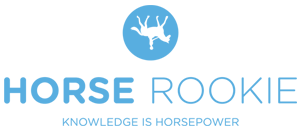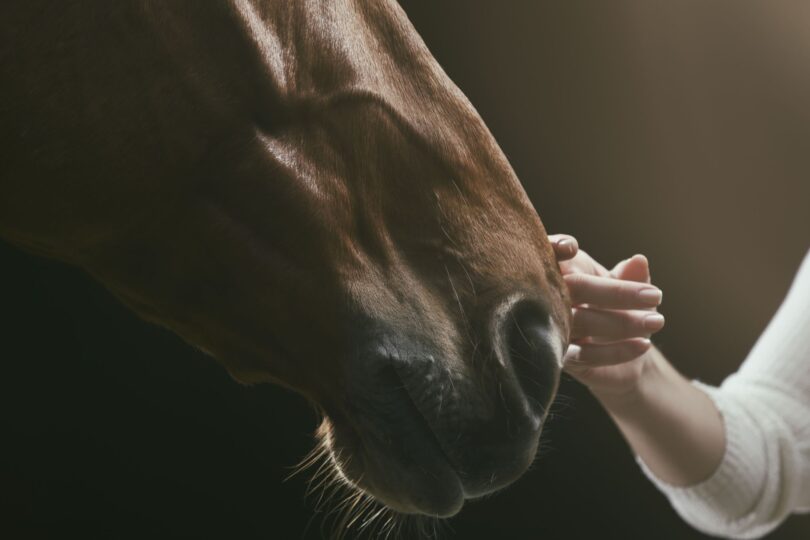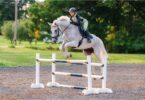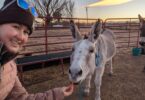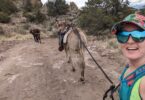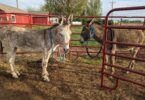Learn the Lingo of Equine Psychology
I decided to study equine psychology because I wanted to understand more about what was going on in a horse’s head and use that knowledge to develop more effective training methods. I didn’t go into it expecting to find a job as a horse shrink, but equally, I knew it would help me achieve other goals, and open other doors.
People study equine psychology for all sorts of reasons and future uses.
Equine behaviorists may opt to study psychology to unravel and correct behavioral problems. Horse trainers may rely on this study of behavior as the starting point for all their lessons. Even veterinary assistants can benefit from this type of study to prepare a horse for treatment.
A qualification in equine psychology won’t necessarily turn you into the next Monty Roberts, but it will help you create a positive relationship with every horse you meet.
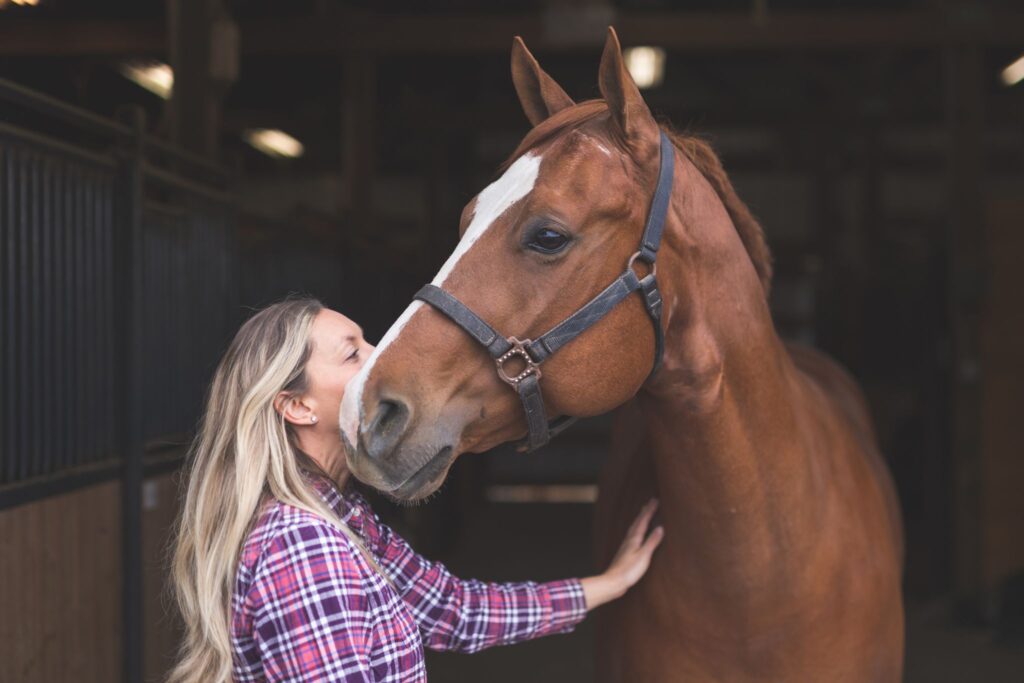
Source: Canva
Equine Psychology: What does it mean?
Equine psychology is the study of the horse’s natural behavior and the science behind that behavior. It starts with understanding how the horse evolved and what governed its survival in the wild.
As we delve deeper into this subject, we gain insights into a horse’s body language and behaviors. Learning to read your horse helps to understand what they’re feeling and thinking so we can adapt our approach accordingly.
Someone who’s studied equine psychology is better able to understand the horse and use its natural instincts to guide its training.
The result is a horse that’s happy and engaged rather than one that’s confused and frustrated.
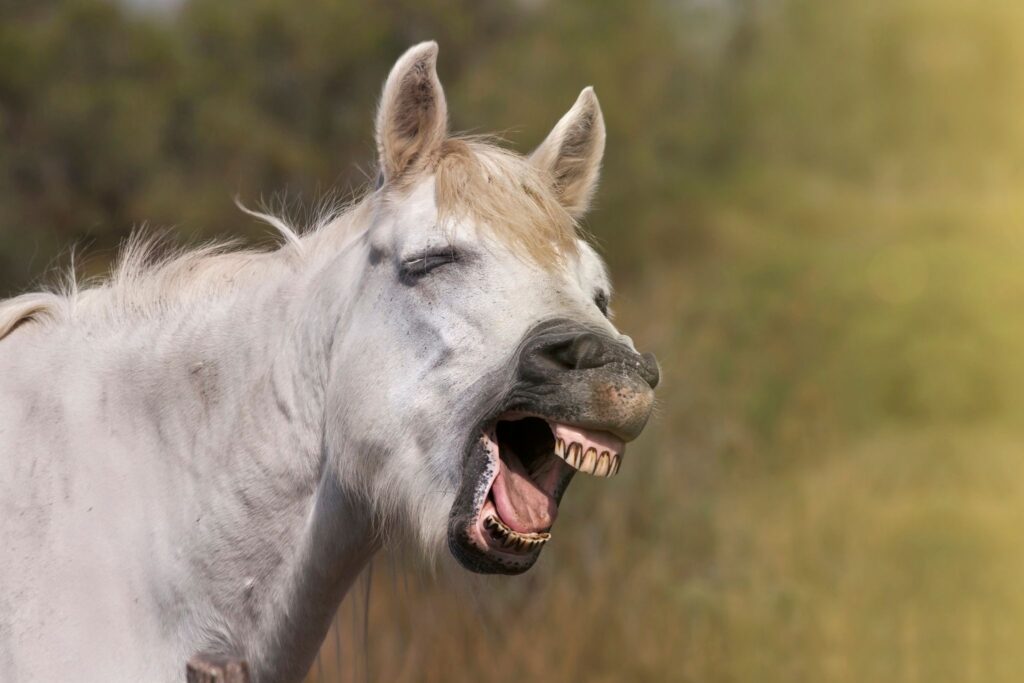
Source: Canva
The Language of the Horse
Carefully observing a herd of horses quickly reveals a constant flow of subtle communications. They may be silent, but their bodies rarely stop talking. A raised head indicates tension and possible danger, flattened ears suggest anger, and a raised tail is often a sign of excitement.
Understanding your horse’s body language is the first step towards open and honest communication.
If you can “hear” him when he “speaks,” you can start learning how to use your own body language to say the things he needs to hear.
By controlling your movements and gestures, you can communicate to the horse that you are the leader and that he’s safe with you. This foundation of trust opens the door to effective communication and cooperation, allowing you to navigate various activities and challenges.
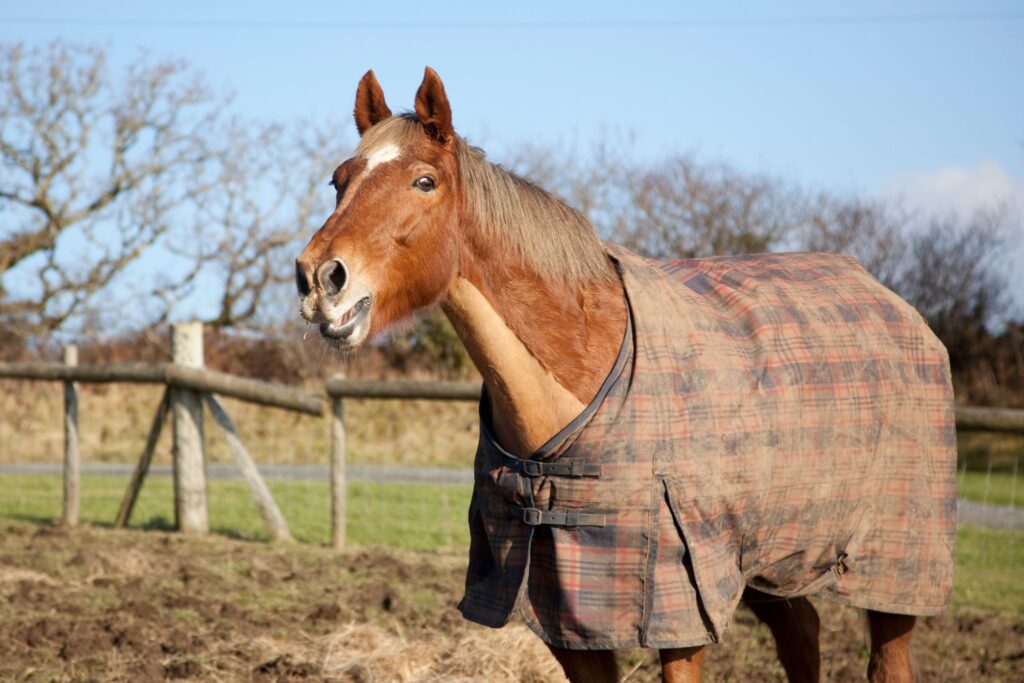
Source: Canva
How to Read Your Horse’s Body Language
Equine psychology begins with understanding how a horse behaves in the wild, and that means understanding that the horse is, first and foremost, a flight animal that runs from danger.
Another critical aspect of equine psychology is understanding the horse as a social creature that relies on its herd for safety and protection.
These fundamental aspects of the horse’s existence influence how it reacts to new situations and how it communicates its concerns or discomfort.
Horses use subtle body language to communicate with one another, establishing and maintaining a complex herd hierarchy with a series of flattened ears, snaking heads, and cocked hind legs.
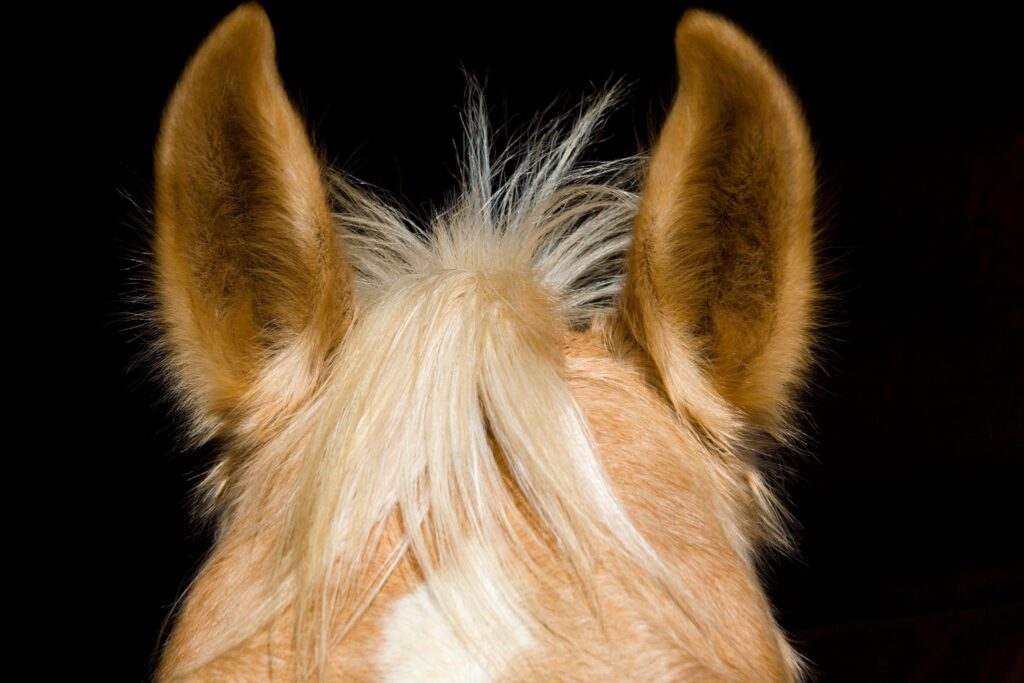
Source: Canva
They use the same language to communicate with humans and are sometimes punished for it due to a lack of understanding. That’s where equine psychology comes in.
It gives us insights into the motivations behind a horse’s behavior and helps us distinguish fear from aggression and stubbornness from ignorance.
How to Communicate with Your Horse
Horses are highly in tune with the body language of others because they live in proximity to so many others. Like humans living in a commune, a horse living in a herd must be aware of its personal space and that of others.
- It needs to respect those that are more dominant and discipline its subordinates to maintain its hierarchical position.
- It uses body language to communicate fear, relaxation, hunger, irritation, frustration, danger, and a wide range of other emotions.
- It also expects to receive information about another’s emotions via their body language, so will watch your posture and gestures to gain an understanding of your mood and your position within the herd.
Equine psychology helps us understand our body language from the perspective of a horse and use it to offer reassurance, establish our position as a trustworthy leader and create a safe environment in which a horse can learn without fear.
Horse Behavior
Horses will submit to a respectful leader that offers them protection and safety.
Within a herd, the alpha member is that leader, and the rest of the herd will submit to them to safeguard their position of safety.
A herd member that behaves inappropriately may be forced out of the herd and left to fend for itself.
Horses interact with humans in a similar way and will gladly submit to someone who shows they are a confident yet compassionate leader. As herd life governs the horse’s horse-human interactions to such a large extent, understanding certain types of behavior is critical for a proactive relationship.
Helpful Horse Behavior Terms
Dominance – dominant individuals within the herd have priority access to all resources, including food and water. This reduces conflict within the herd, minimizing the chance of injury.
Submission – submissive herd members respect the dominant individuals and move out of their space, giving them access to the best of all resources.
Herd Bound – in the wild, a horse that isn’t in a herd is one in grave danger, so it’s natural for horses to be attached to the herd and unwilling to leave it.
Fight – the fight or flight instinct is a psychological response to a threat. Horses will choose flight whenever possible, but will fight if cornered or to protect their position in the hierarchy. Stallions also fight for mating rights and territory.
Flight – the horse is a flight animal, meaning it’s more inclined to run away from a threat than stand and fight.
Stimuli – these are signs that alert the horse to possible danger. We can desensitize the horse to some stimuli using positive reinforcement techniques.
Herd Hierarchy – this is the pecking order that provides the herd structure.
Alpha – the alpha individual is the most dominant in the herd and is usually a mare.
Body Language – the non-verbal communication horses rely on.
Vocalizations – verbal communications, such as whinnies, neighs, nickers, and snorts.
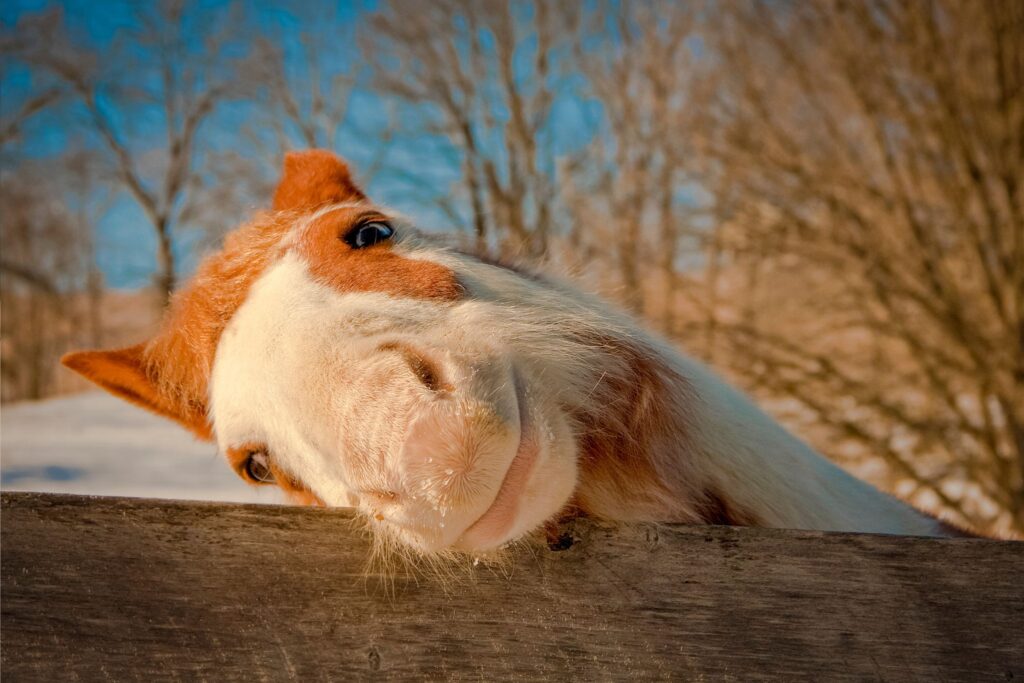
Source: Canva
A Qualification in Equine Psychology
There are only a handful of institutions offering courses and qualifications in equine psychology and behavior. Most of these are accredited diploma-level courses, although I did also discover one UK university offering a degree (BSc) in Equine Behavioral Science.
How to Find a Reputable College or University
Before signing up for a course in equine psychology and handing over your hard-earned cash, make sure the institution you’re signing up with is valid and the course is accredited.
The course I did was accredited by the Complementary Medical Association (CMA). Other courses may carry Continuous Professional Development (CPD) accreditation, which is recognized worldwide.

Source: Canva
Typical Classes & Curriculum
If you enroll in an online diploma course in equine psychology, you can expect to study the following subjects, among others:
- Horse evolution
- Herd structure
- Communication and body language
- Natural behaviors
- The behavior and psychology of the young horse
- Reproductive behavior
- Learning theory
- Horse/human relationships
- Equine behavior in the managed environment
- Approaches to horse training
How to Set Yourself Up for Scholarly Success
To complete a course in equine psychology, you simply need to come to grips with your time management and note-taking capabilities. Once you’ve got those foundations in place, the rest will follow.
Set a realistic schedule for yourself. Take your other commitments (like your horse) into consideration, and set aside appropriate study time(s) each week.
Take detailed notes throughout each session and review them afterward, making sure you’ve included all the pertinent points.
If possible, practice what you’ve learned on your horse. Practical experimentation is a great way to further your understanding of body language and see the effects of different training techniques.
A Career in Equine Psychology
Equine behaviorists are gradually making a name for themselves. The more the equestrian community wakes up to the idea, the more opportunities become available.
That’s not to say that everyone with a diploma in equine psychology is going to end up pursuing an obvious career path. Many people, like me, chose to study simply to improve their relationship and communication with their own horses rather than in an attempt to increase their employment prospects.
Nevertheless, there are some interesting jobs you could end up doing with the necessary qualifications.
Career Options with an Equine Psychology Degree
The most obvious career for someone with a degree or diploma in equine psychology is that of an equine behaviorist or behavioral consultant but you could also consider the following options:
- Trainer or Assistant Trainer
- Horse Riding Instructor
- Research Assistant
- Barn or Ranch Manager
- Horse Camp Manager
- Pony Party Event Organizer
- Groom
- Nutritionist
- Horse Welfare Officer
- Rehoming and Rehabilitation
Salary Ranges for Various Equine Psychology Careers
A lot factors into salary potential, from chosen field of study to geographic location and experience.
A few examples for context, as of 2023:
- A certified animal behaviorist in the US can earn between $55,000 to $63,000 a year, according to ZipRecruiter.
- A successful racehorse trainer can command a yearly salary of up to $440,000! Most horse trainers must make do with a lot less, however, often bringing in between $17,000 and $37,500.
- Brand inspection officers generally average around $27/hour, which equates to approximately $56,000 annually.
- A successful equine nutritionist has a median salary between $53,000 and $80,000 per year.
Using Equine Psychology with Your Horse
I didn’t pursue a diploma in equine psychology to get a job out of it—I just wanted to enhance my relationship with my own horses and improve my approach to training both young and problem horses.
Equine psychology training helped me to gain a deeper understanding of my horse’s psyche and why she responds to certain stimuli the way she does. It taught me to be more patient with her, especially on windy days when the sounds and smells of potential predators are harder to discern, making the horse feel frightened and insecure.
I’ve become more sympathetic to my horse’s natural instincts, which has enabled me to anticipate her behavior more accurately, creating a safer environment for both of us.
The course also reiterated the importance of positive reinforcement techniques and the problems we create using punishment to prevent unwanted behavior.
Parting Thoughts
I completed my diploma in equine psychology back in 2020, and it hasn’t made me a single cent. I don’t care, though, as I never enrolled to earn money—I simply wanted to understand horses better and improve my ability to communicate with them.
I’ve certainly achieved that and believe that the course continues to influence my interactions with horses daily, enabling me to notice subtle changes in their behavior and give them the care they need as individuals.
Equine psychology is a fascinating subject, whether you’re a wannabe practitioner or just starting out on your equestrian adventure.
It gives you useful insights into your horse’s behavior and body language, enabling you to communicate more clearly and build a deeper, stronger relationship.
P.S. Enjoy this article? Trot on over to:
- Safe vs. Scared Mindset
- Equine Behavior & Psychology (Online course)
- Speaking Their Language: Translate Equine Physiology & Psychology
- How to Train a Horse (Helpful Techniques & Timing)
- Equine Einstein: Understanding Horse Intelligence
Sources/References:
Horse Psychology & the Language of Horses
11 Highest-Paid Equine Careers | Indeed.com
Equine Therapist Salary
Livestock Brands Inspector Salary in Colorado (Hourly)
